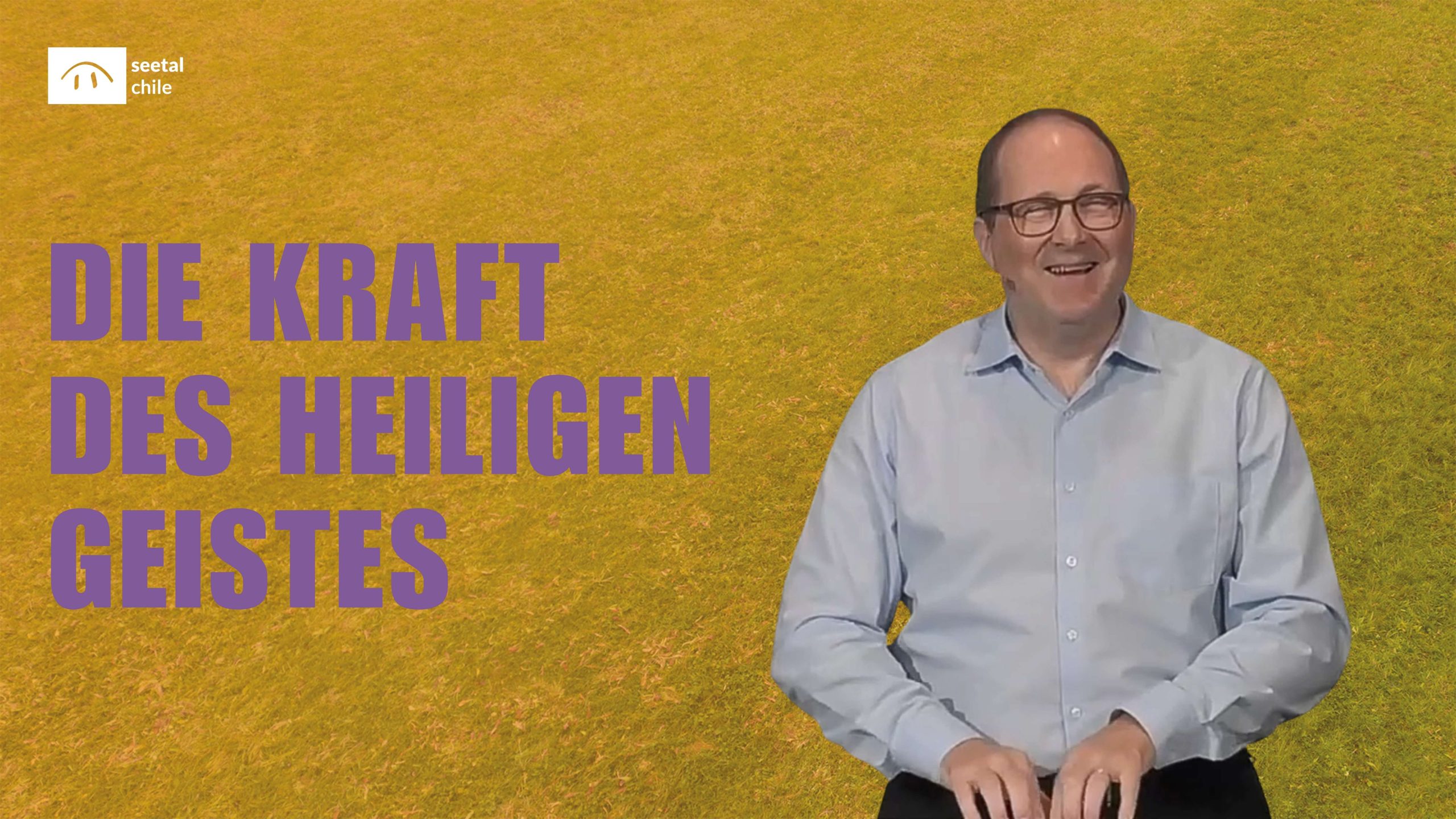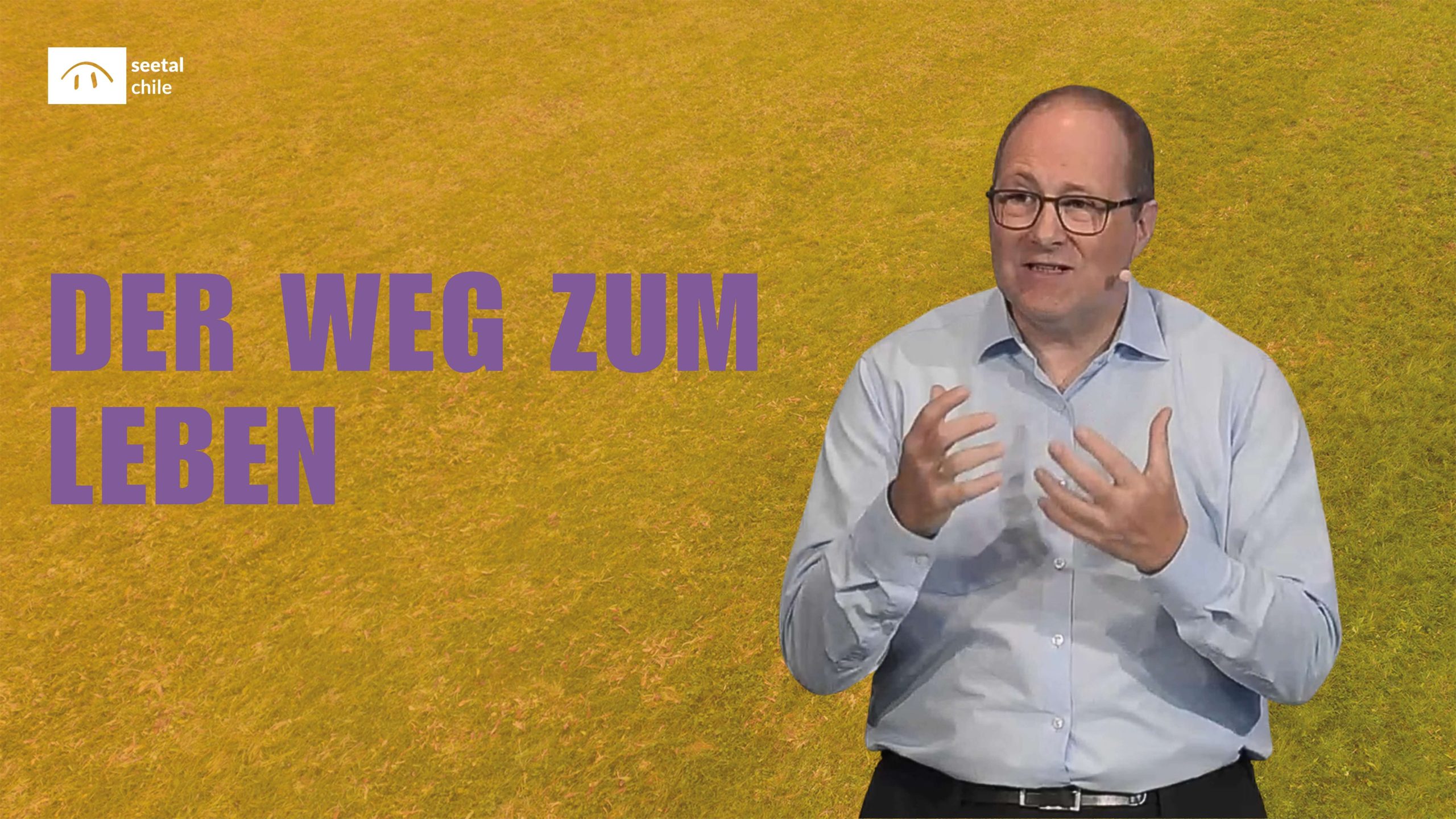Parents after the heart of God
Series: Welcome home | Bible text: 1 Corinthians 4:15; etc.
The fact that God presents Himself as Father in the Bible gives a huge dignity to the themes of parenting, upbringing and filiation. We may first enjoy God’s fatherly qualities personally and then also apply them in parenting. God’s parenting model describes itself with the words freedom, consistency and relationship. God’s top priority is a heart relationship.
Psychology says that what you experience in the first six years of life is your «normal». In other words, what you perceive as normal in life is what happened to you in the first six years of your life. As parents, we can shape people in a way that no one else can. Extensive studies have been done on people who have committed crimes. Namely, they looked for patterns that run through you. It was found that there is a very high correlation between being a delinquent and having unstable parents. A psychologist was asked in the Frankfurter Allgemeine what should be done so that boys do not become delinquent. His answer: «They need a good father.»
No man is good
«Why do you call me good?» Jesus replied. Only God is good, no one else.»(Mark 10:18 NGÜ). No one is good – except God. There are no righteous and good parents, there are only normal sinners. Yet we want to be good fathers and mothers. We start parenthood with the conviction that we will do very well, certainly better than our own parents did. And then we find ourselves failing just as much and «throwing out» the same sentences as they did. We all have imperfect sinful imprinting. We all carry father and mother wounds. Maybe our father was emotionally cut off or traumatised. We come from a situation that is not perfect and start as people who are broken ourselves.
You too will not be the perfect parent and hurt your children. The message is: you have a sinful nature and so do your children. We need redemption through Jesus Christ. It is only the cross of Jesus that gives us the image of the perfect Father. We need to learn from the perfect father what parenting means. He is the only source from which we can love the children into life. The goal is not to be perfect parents, but for our children to learn to go to God the Father as we go to Him. We can set an example for them by taking them along the way.
Therefore, the basis of all education is that we take care of our own history. You become a whole, relational person when you face your own shadow sides and hurts – the painful elements of your history. Not having emotional access to the children may have to do with how I deal with myself and my feelings. Maybe you don’t manage to be an authority figure. We must let the Holy Spirit show us our unhealthy imprints. If we don’t, our own children will trigger us. We see the three-year-old son and suddenly realise how lonely or hurt we have felt in a similar situation. As I said, we feel our own imprints are normal, even if they are proud, arrogant, untruthful or even violent. It’s high time to stop talking in terms of what is normal and instead go to Jesus with our imprints.
We need healing. Precisely also because of the fact that Stephen Corvey says: «That which you are screams so loudly in my ears that I cannot hear what you are saying.«It is not enough for us to say the right thing. The children do what they see us do. Only Jesus can change us from the inside.
God is the perfect father
When we talk about parenthood, we have to assume the one perfect father. It is great that God introduces Himself as Father. This means that the subject of parenthood has a huge dignity. Childhood, parenthood and education are among the most important themes in the Gospel. The creation story shows us the characteristics of this fatherhood:
God as Father…
…wants you to be YOU. God creates human beings; namely Adam and Eve. He did not create copies, but deliberately different persons. He wants you to be at all and you to be YOU. God could also have said: «I exist, I am perfect, what more do I want?» Many married couples don’t want children at all because they don’t want to put themselves through that stress and their lives are already filled enough. God created human beings even though he knew that they would do a lot wrong.
… is in charge. God has no problem with his position and announces the rules of the game at the very beginning. God loves unconditionally, but also makes a clear announcement. He wants us to obey.
… loves unconditionally. Adam and Eve are simply there and have not yet achieved anything, yet God says: «You are very good!«God rejoices in the fact that they are simply there. God the Father loves you unconditionally too!
… educates for personal responsibility. God puts Adam and Eve in a garden with a forbidden tree. Imagine: You put something in front of your child that he or she likes and say: «You mustn’t!«Full of nastiness? Or good training? God wanted man to develop the ability to take responsibility himself. There are parents who wrap their children in cotton wool so that nothing can ever happen. God puts them in the garden and knows that things can really go wrong. God deals with us in the same way. He puts us in situations where we learn to act and react according to his heart.
… spares you nothing. He puts Adam and Eve in a space of freedom and says: «You can choose, but your choices have consequences. If you eat from this tree, you will die.«Sometimes parents want to spare their children everything. They do not learn to act on their own responsibility because they are never confronted with the consequences. God allows us to reap the fruits of our behaviour. Not because he is evil, but because he loves and educates us.
… always gives a new chance. In the end, they mess up. Throughout salvation history, God always gives individuals or his entire people a new chance.
… is always true to his word. One of the main statements in God’s Word is: What I say, I really do. How deep is the hurt in children when parents are not true to their word and are not reliable.
… confronted sin. Sometimes children do bad things and lead a wild life. There are fathers who then say: «Ah yes, go ahead. We were all young once!«Probably a child hardly feels loved. God is not a stuffed teddy bear who doesn’t care about anything we do. A real father says: «Yes, I am your father and I know what you are made of. You live below your level, there is more in you.» This is how Jesus confronts sin in our lives.
… speaks identity. Throughout the Bible we encounter a God who grants identity to his people or to individuals: «You are the planting of the Lord»(Isaiah 61:3). «You are my people, I am your God» (Jeremiah 30:22). «But you, Israel, are my servant» (Isaiah 41:8). «You are a royal priesthood, God’s holy people»(1 Peter 2:9). One of the most important things parents can do is to give their children an identity.
These points are the programme for the education of our children. And Heavenly Father wants all this for you too – no matter how imperfect or hurt you are.
disciplinarian or father?
«For if ye had ten thousand disciplinarians in Christ, yet not many fathers.»(1 Corinthians 4:15 Elb). Paul distinguishes between disciplinarians and fathers. The Greek word for disciplinarian paidagogos is otherwise only needed in the Bible for the law. Let it be a disciplinarian towards Christ (Galatians 3:24f). The disciplinarian and the father stand for two fundamentally different concepts of education.
The Zuchtmeister concept describes itself with the words control – fear – distance. A disciplinarian is not about relationship, but about conditioning correct behaviour. Educating with the aim of control. It is the attitude that says: My will be done. Often, parenting is trying to get children not to be annoying. «I am stronger than you, so you have to do what I want!» «As long as you have your feet under my table, I’m in charge!«Necessarily, control reigns through fear. The child does not obey because it has understood something, but out of fear. «I better do what Mummy says or she’ll freak out again!» Such a child is looking for an opportunity where we are not looking. When we try to condition and control our children, we lose their heart and breed distance and rebellion in them. It is a matter of time before there is an uprising among despots. We must not confuse obedience with a good relationship.
«[…] And our love knows no fear, because perfect love casts out all fear. He who is still afraid expects punishment, and this shows that his love in us is not yet perfect»(1 John 4:18 NL). Fear and love bite each other. God does not want you to obey out of fear – he builds on relationship. The Father concept builds on the three pillars of freedom, consistency and relationship. God the Father created a garden by giving the freedom of choice to do this or that. There is also the possibility to miss. God is love. Love only arises where there is freedom. You can’t force anyone to love you, and you can’t beat anyone into loving you. God could have created a universe without suffering – but only at the expense of love. For love presupposes freedom. Because God is love, he educates about choice and consequence. Adam and Eve could eat from the tree of knowledge, but there were consequences. When my children have the freedom to decide this way or that way with this or that consequence, I educate for relationship skills. If children do not learn to make a decision, their whims will win out – and they will become a little bit more incapable of relationships.
Cain was envious of Abel because the latter seemed to score better with his sacrifice (Genesis 4:3ff). Envy is a well-known phenomenon among children. Now God makes an instructive pedagogical intervention. He could respond with control: «You better not be jealous!» Cain would leave, but his heart would not have changed. God says: «Why are you looking at the ground so grimly? Is it not so: If you have good in mind, you can look around freely. But when you plan evil, sin lies in wait for you. It wants to bring you down. But you shall reign over it!»(Genesis 4:7 NL).
God allows Cain to be tempted. He does not leave, but lives relationship and says: «You are in a difficult situation: Rule over sin!» God wants Cain to learn self-control – the ability not to always see himself as a victim of circumstances. The world is full of pedagogy that doesn’t want that. When circumstances are so bad, you have to become a sex offender… God wants to empower Cain to make a good decision, but does not make it for him. The core of good education is: «I do not solve the problem for you, but I am there to help you. You rule over temptation!» Every child faces the difficult task and must learn to take responsibility for his or her life. Last week I heard in a presentation that people of the baby boomer generation have a tendency to be helicopter parents. They tend to continuously «fly» their children out of difficult situations. «Go ahead, if it goes wrong, I’ll pay the bill already.«This is not how a person learns to rule.
God’s top priority is a heart relationship. He is not interested in you parrying only out of fear of punishment. God does not control, He builds on relationship. «If you love me, you will keep my commandments»(John 14:15). First love, then the right behaviour. From our relationship with God, our behaviour will adapt. And in doing so: «The deepest reason for our confidence lies in God’s love for us: we love because he first loved us»(1 John 4:19 NCC).
Possible questions for the small groups
Read the Bible text: Genesis 4:3–10
- How do you deal with your imperfect nature and how do you ensure that history does not repeat itself without reflection?
- Which of God’s fatherly qualities do you personally value most? Which ones do you not yet use enough in raising your children?
- What does the «disciplinarian» model of education look like in practice? Do you tell true or constructed examples about it?
- What preconditions are needed for a child to be able to deal with the freedom described? What are practical, meaningful consequences?
- Task for parents: Think about where you could give the child freedom and what is a meaningful consequence.






